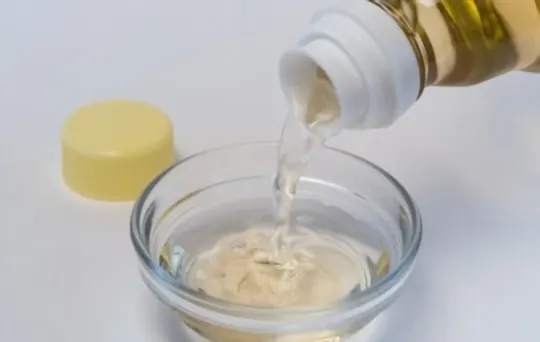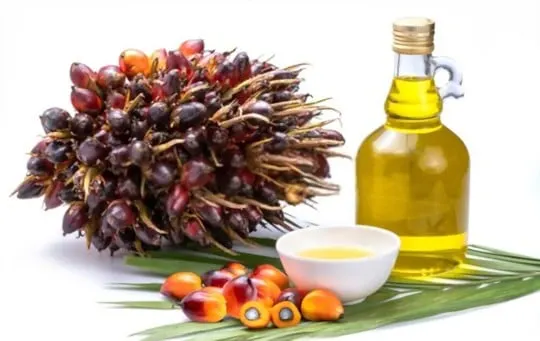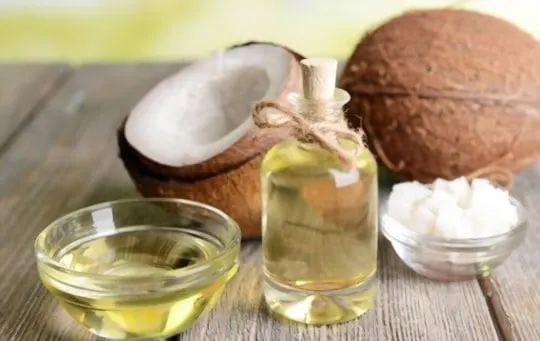Oh, the kitchen experiments – they’re never dull, are they? Coconut vinegar. Heard of it?
It’s that secret punch in our culinary arsenal, giving dishes a unique tang and depth.
Running low or can’t find it? No sweat. We’ve got a plan. Substitutes? Absolutely, and not just any.
We’re talking about swaps that keep your dishes singing.
Each option we’re about to uncover delivers its own zing, ensuring your meals lose none of their flair.
From salads to marinades, these alternatives are game-changers. Ready to keep the flavor party rolling?
Great, because these kitchen hacks are going to lighten the load and keep the taste soaring.
What is Coconut Vinegar?

Coconut vinegar is a type of vinegar made from fermented coconut water.
It has a slightly sweet, sour, and acidic flavor.
Vinegar is popular in Southeast Asian cuisine and can be used in cooking and as a table condiment.
Coconut vinegar is made by adding yeast to coconut water, which ferments the sugars in the liquid and produces acetic acid.
The vinegar can also be made by fermenting the coconut pulp itself.
The finished product is then filtered and bottled.
Coconut vinegar has a shelf life of up to two years if stored in a cool, dark place.
When using it in cooking, it is important to remember that the acidity level can vary depending on the brand.
As a result, it is important to taste the vinegar before using it in a recipe to ensure that it will not make the dish too sour.
The 5 Best Substitutes for Coconut Vinegar
If you don’t have coconut vinegar on hand, or can’t find it at your local grocery store, don’t worry.
There are several substitutes that will work just as well in your recipe.
Here are the five best substitutes for coconut vinegar:
1 – Apple Cider Vinegar

Apple cider vinegar is a type of vinegar made from apple cider that has undergone fermentation to become hard.
Unlike other types of vinegar, it is not made by distilling alcohol.
The process of making apple cider vinegar begins with crushing apples and squeezing out the juice.
The juice is then left to ferment for a period of time, during which bacteria and yeast convert the sugars into acetic acid.
This gives apple cider vinegar its characteristic tart flavor.
In addition to its use as a cooking ingredient, apple cider vinegar has a long history of being used as a folk remedy for various ailments.
It is thought to have antimicrobial and antiseptic properties and is often used as a natural cleaning agent.
Apple cider vinegar can also be used topically on the skin to help treat conditions such as acne and dandruff.
2 – Rice Wine Vinegar

Rice wine vinegar is a type of vinegar that is made from fermented rice.
It has a light, mildly sweet taste and is often used in Asian cooking.
Rice wine vinegar can be used to add flavor to salads, marinades, and stir-fries.
It is also a popular ingredient in sushi vinaigrette.
When shopping for rice wine vinegar, it is important to look for one that is labeled “unseasoned” or “natural”.
This type of vinegar has not been exposed to air during the fermentation process, resulting in a higher acidity level.
Seasoned rice wine vinegar has been aged for several months and has a milder flavor.
3 – Sherry Vinegar
Sherry vinegar is a type of vinegar made from sherry wine.
It has a deep amber color and a complex, nutty flavor.
Sherry vinegar is traditionally used in Spanish cooking, but it can be used in any recipe that calls for vinegar.
It is an excellent choice for salad dressings and marinades and can also be used to deglaze pan-fried dishes.
When shopping for sherry vinegar, look for a brand that is aged for at least six months.
This will ensure that the vinegar has a rich flavor and aroma.
4 – Palm Vinegar

Palm vinegar, also known as palm wine vinegar or simply palm vinegar, is an acidic liquid produced from sugarcane juice or toddy ferment.
It is used extensively in Asian cuisines, particularly Chinese, Vietnamese, Laotian, and Philippine cuisine.
Palm vinegar has a light to medium amber color and a slightly sweet to sour taste.
It is used as a condiment, ingredient, pickling solution, and marinade.
Palm vinegar is also used medicinally as a folk remedy for colds, stomach aches, and diarrhea.
In the Philippines, palm vinegar is commonly used in dishes such as adobo, sinigang, Kare-Kare, and paksiw.
It is also used as a dipping sauce for fried foods such as lumpia and fish balls.
5 – Malt Vinegar

Malt vinegar is a type of vinegar that is made from malted barley.
It has a dark brown color and a slightly sweet flavor.
Malt vinegar is an inexpensive and versatile product that can be found in most supermarkets.
Malt vinegar is commonly used in fish and chips and in other British dishes such as bangers and mash.
It can also be used for pickling vegetables or for making salad dressing.
Malt vinegar is an ingredient in many Worcestershire sauces and some barbecue sauces.
In addition, it can be used as a cleaning agent or for making homemade window cleaners.
Conclusion
In conclusion, the five best substitutes for coconut vinegar are apple cider vinegar, rice wine vinegar, sherry vinegar, palm vinegar, and malt vinegar.
All of these kinds of vinegar can be used in place of coconut vinegar in recipes.
Each vinegar has a unique flavor that can add different dimensions to your dish.
So, experiment with different kinds of vinegar to find the perfect flavor for your meal.

The 5 Best Substitutes for Coconut Vinegar
Ingredients
- Apple Cider Vinegar
- Rice Wine Vinegar
- Sherry Vinegar
- Palm Vinegar
- Malt Vinegar
Instructions
- Pick your favorite substitute from the list above.
- Follow cooking directions for your selected substitute with the proper ratio of ingredients.

Andrew Gray is a seasoned food writer and blogger with a wealth of experience in the restaurant and catering industries. With a passion for all things delicious, Andrew has honed his culinary expertise through his work as a personal chef and caterer.
His love for food led him to venture into food writing, where he has contributed to various online publications, sharing his knowledge and insights on the culinary world. As the proud owner of AmericasRestaurant.com, Andrew covers a wide range of topics, including recipes, restaurant reviews, product recommendations, and culinary tips.
Through his website, he aims to inspire and educate fellow food enthusiasts, offering a comprehensive resource for all things food-related.

Leave a comment